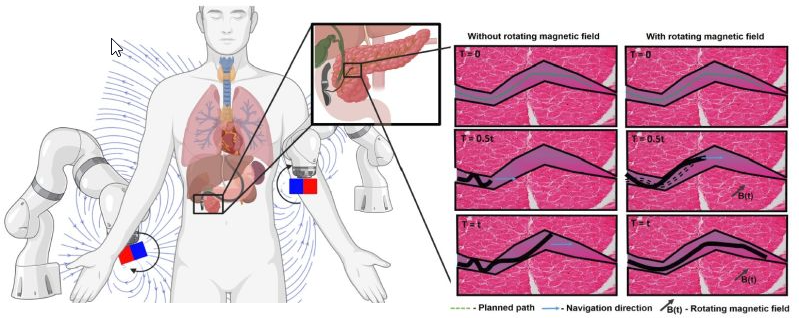
The research team at STORMLAB has introduced an innovative approach in the realm of minimally invasive surgery with their latest development in robotic catheters. These new devices, characterized by their flexibility and magnetic control, offer promising advancements in surgical precision and safety.
The focus of the recent study by the research group has been on magnetic soft continuum robots (MSCRs). These robots are uniquely designed to be both soft and highly maneuverable, which could potentially enable surgeons to access and operate in challenging areas of the body such as the lungs, brain, and pancreas, where traditional surgical tools may be limited.
One of the key findings of the research involves the successful implementation of a technique to prevent the buckling of these slender catheters during insertion. This is achieved by strategically combining a specific magnetic profile with the influence of a rotating magnetic field (RMF), which imparts a snake-like, serpentine motion to the catheters.
The MSCRs, made from NdFeB doped silicone polymer, are designed in diameters of 2 mm and 3 mm. Their unique magnetic profile, when exposed to an RMF, enables them to navigate effectively through narrow and complex paths. The team’s experiments, conducted using models that simulate the anatomical challenges of areas like the pancreas and bile ducts, have shown encouraging results in the catheter’s ability to navigate tight and tortuous paths.
Furthermore, the application of RMF has demonstrated a significant reduction in the force required for insertion, alongside an increase in the distance that these catheters can effectively cover.
This research forms a part of an ongoing project that aims to develop and utilize biodegradable catheters capable of delivering medication directly to specific sites within the body, such as the pancreatic or bile duct, via a flexible endoscope.
For more detailed information and to view related videos, please refer to our recently published paper at https://ieeexplore.ieee.org/document/10313019
